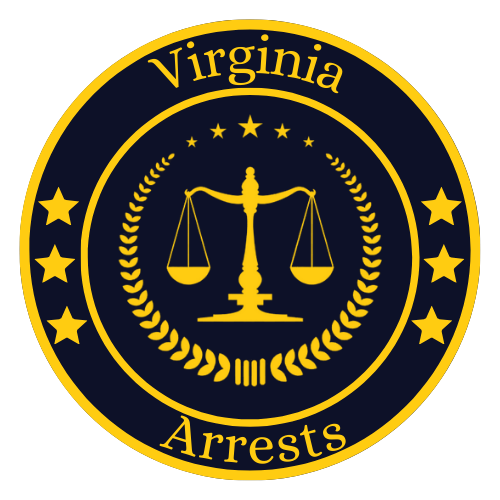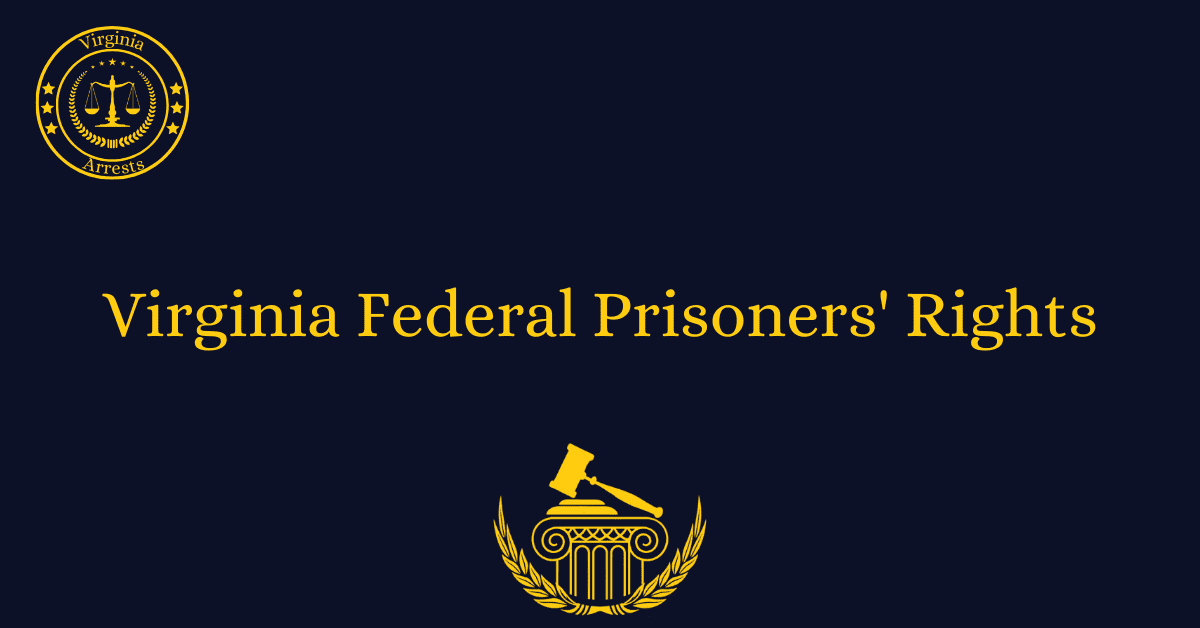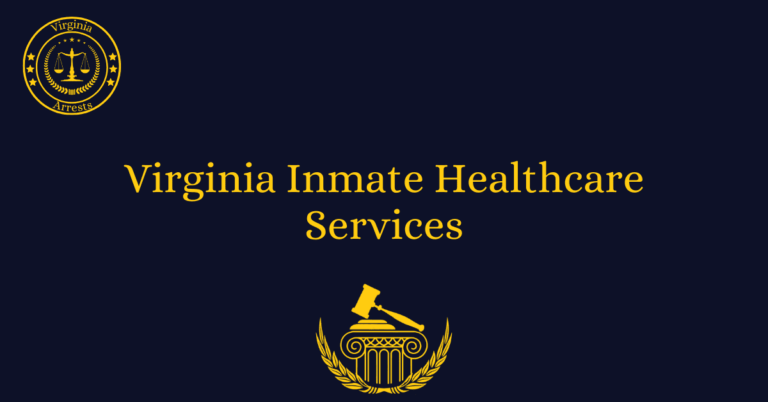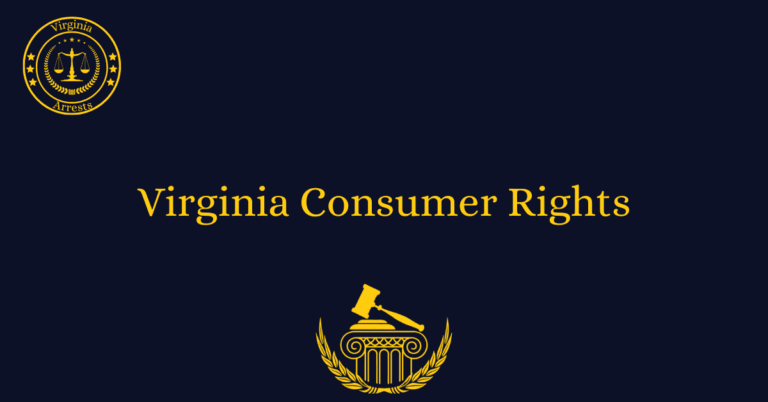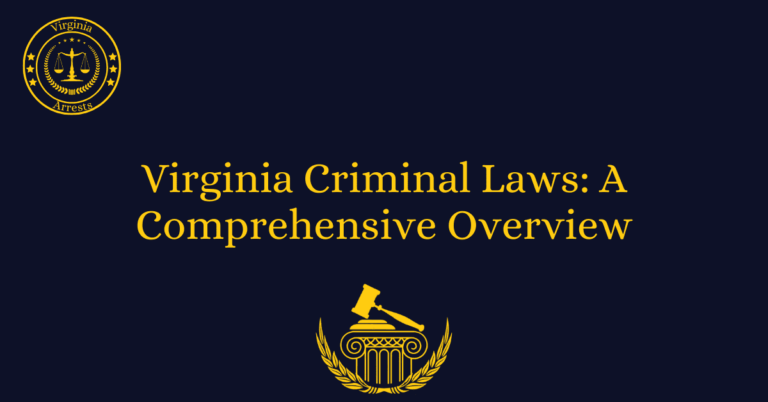Virginia Federal Prisoners’ Rights
In the United States, the rights of prisoners, including those incarcerated in federal facilities, are protected by various laws and regulations. In Virginia, federal prisoners are entitled to certain rights aimed at ensuring their fair treatment, safety, and well-being during incarceration. Understanding these rights is crucial for both inmates and their families, as well as for advocates and legal professionals working within the criminal justice system.
Constitutional Rights
Federal prisoners in Virginia retain certain constitutional rights, including protection against cruel and unusual punishment (Eighth Amendment), the right to due process (Fifth and Fourteenth Amendments), freedom of speech (First Amendment), and the right to petition the government for grievances (First Amendment). These rights form the foundation for ensuring fair treatment and access to justice for all individuals, regardless of their incarceration status.
Access to Legal Representation
Federal prisoners have the right to access legal representation, whether through appointed counsel or by retaining their attorney. This ensures that inmates can effectively advocate for their rights, challenge any wrongful convictions or sentences, and seek remedies for violations of their constitutional or legal rights.
Medical Care
Prisoners are entitled to receive adequate medical care while incarcerated. This includes access to medical professionals, necessary medications, and treatment for physical and mental health conditions. Failure to provide adequate medical care can constitute a violation of prisoners’ rights and may result in legal action against the prison administration.
Protection from Discrimination
Federal law prohibits discrimination based on race, religion, national origin, disability, gender, or other protected characteristics. Prisoners in Virginia have the right to be free from discrimination or harassment by prison staff or other inmates. Any instances of discrimination should be reported and addressed promptly to ensure a safe and inclusive environment within the prison facility.
Access to Education and Rehabilitation Programs
Inmates have the right to access educational and rehabilitative programs aimed at reducing recidivism and preparing them for reentry into society. These programs may include GED classes, vocational training, substance abuse treatment, and mental health counseling. Providing prisoners with opportunities for personal growth and skill development can enhance their chances of successful reintegration into their communities upon release.
Visitation and Communication
Federal prisoners are entitled to maintain contact with their families and loved ones through visitation and communication channels. While visitation may be subject to certain restrictions for security purposes, prisoners have the right to correspond with approved individuals via mail, email, and telephone. Maintaining these connections can have positive effects on prisoners’ mental health and overall well-being during their time of incarceration.
Grievance Procedures
Inmates have the right to file grievances regarding any violations of their rights or mistreatment within the prison system. Each federal facility in Virginia should have established grievance procedures that allow prisoners to formally raise concerns and seek resolution through internal channels. Access to a fair and transparent grievance process is essential for holding prison authorities accountable and addressing issues of misconduct or abuse.
Religious Freedom
Federal prisoners have the right to practice their religion freely, subject to reasonable restrictions necessary for institutional security and safety. Prison administrations must accommodate inmates’ religious beliefs and practices to the extent possible, providing access to religious materials, dietary accommodations, and religious services or ceremonies.
FAQs
What rights do prisoners have at Virginia Federal Prison?
At Virginia Federal Prison, we are dedicated to upholding the rights of all prisoners under our care. We believe in treating each individual with dignity and respect, ensuring they have access to basic necessities, medical care, and legal representation.
What measures are in place to ensure the safety of inmates?
Our team of experienced corrections officers and support staff work tirelessly to ensure the safety and well-being of every inmate. We have strict security protocols, regular checks, and surveillance systems in place to maintain a secure environment within the prison.
Do you provide educational programs for prisoners?
Yes, we offer a range of educational programs to empower prisoners and help them acquire new skills and knowledge. From basic literacy classes to advanced vocational training, we strive to provide opportunities for personal growth and development.
What types of vocational training programs are available?
We offer various vocational training programs such as carpentry, culinary arts, automotive repair, and computer programming. These programs aim to equip inmates with practical skills that can increase their chances of finding employment upon release.
How do you prepare prisoners for successful reintegration into society?
Along with education and vocational training, we provide counseling and rehabilitation programs to address behavioral issues and help prisoners develop a positive mindset. We also offer assistance with job placement, housing, and community support to facilitate a smooth transition back into society.
Conclusion
Ensuring the rights of federal prisoners in Virginia is essential for upholding principles of justice, fairness, and human dignity within the criminal justice system. By understanding and advocating for these rights, individuals can work towards improving conditions of confinement, promoting rehabilitation, and safeguarding the well-being of all individuals affected by incarceration. Efforts to protect prisoners’ rights contribute to a more equitable and humane system of justice for society as a whole.
